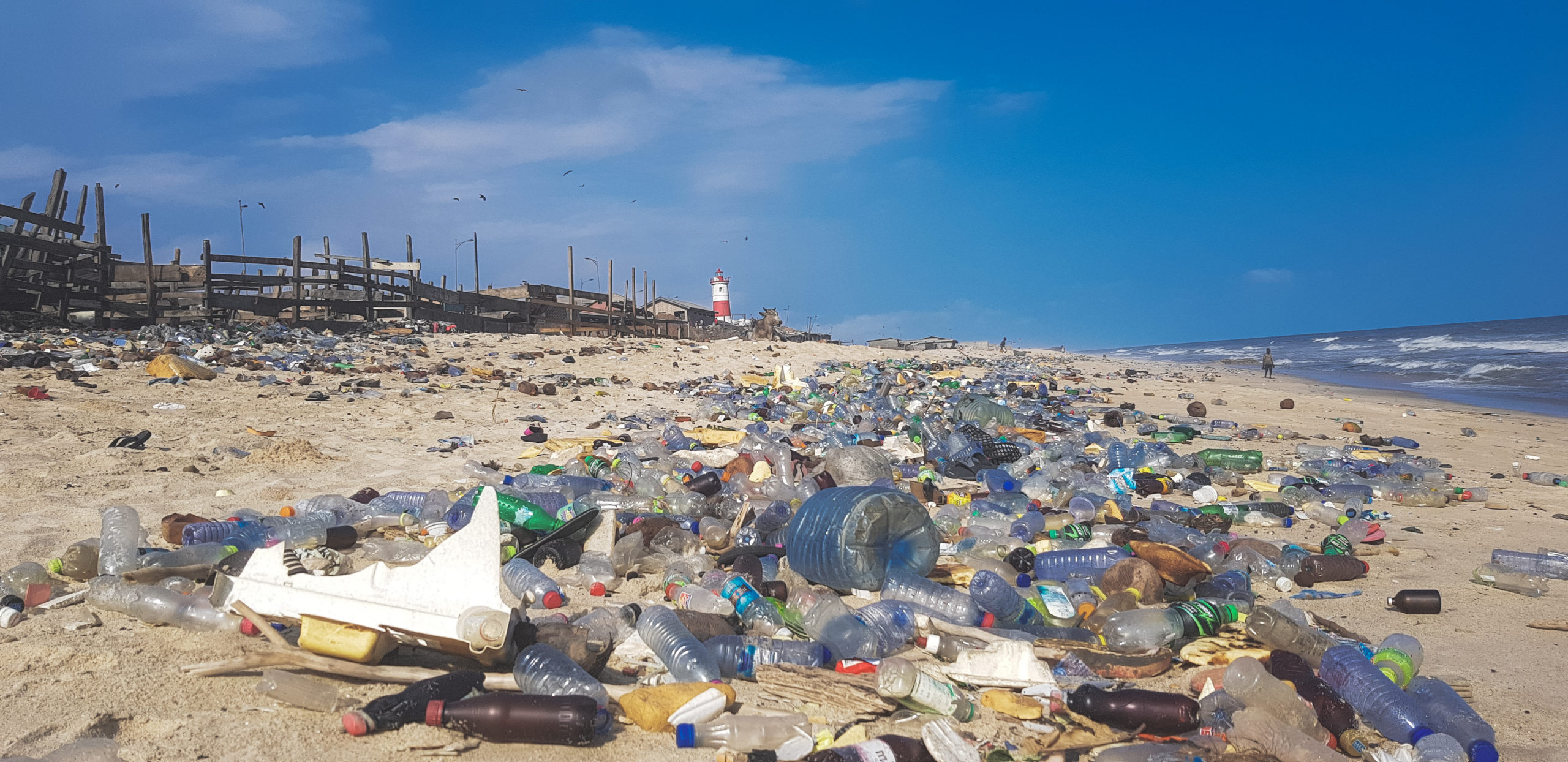
Picture for representational purpose only (Picture Credit: Muntaka Chasant, Plastic Pollution in Ghana, CC BY-SA 4.0)
A new report released by the The Pew Charitable Trusts and SYSTEMIQ suggests that there is “an evidence-based, comprehensive, integrated, and economically attractive
pathway to greatly reduce plastic pollution entering into the oceans.”
“Breaking the Plastic Wave,” a global analysis using modeling, shows that annual flows of plastic into the ocean can be cut by about 80% in the next 20 years by applying existing solutions and technologies. No single solution can achieve this goal, states the report, and the plastic wave can be broken only by taking “immediate, ambitious, and concerted actions.”
The Report acknowledges that although progress has been made in addressing the global plastic challenge, preventing the vast majority of plastic from entering the ocean requires “reducing plastic use, finding substitutes for plastics, improving recycling practices, expanding waste collection, and ensuring that disposal facilities prevent plastic leakage as a transitional measure.”
Businesses are focused mainly on recycling or otherwise disposing of plastic, but significant efforts are also needed to eliminate its use, the report concludes. Scaling up collection rates in middle and low-income countries like India is also recommended as a top priority in the Report, which makes a recommendation to stop global waste exports by ensuring that countries take responsibility for the waste they generate Substantial shifts in all economic sectors, significant new investments, and major policy changes from governments are essential, it asserts.
Specfic recommendations for middle- and low-income countries like India include: Focus on expanding collection of plastic waste, maximizing reduction and substitution, investing in sorting and recycling infrastructure, and reducing leakage from waste sites.
Picture Credit: Muntaka Chasant, Plastic Pollution in Ghana, CC BY-SA 4.0



